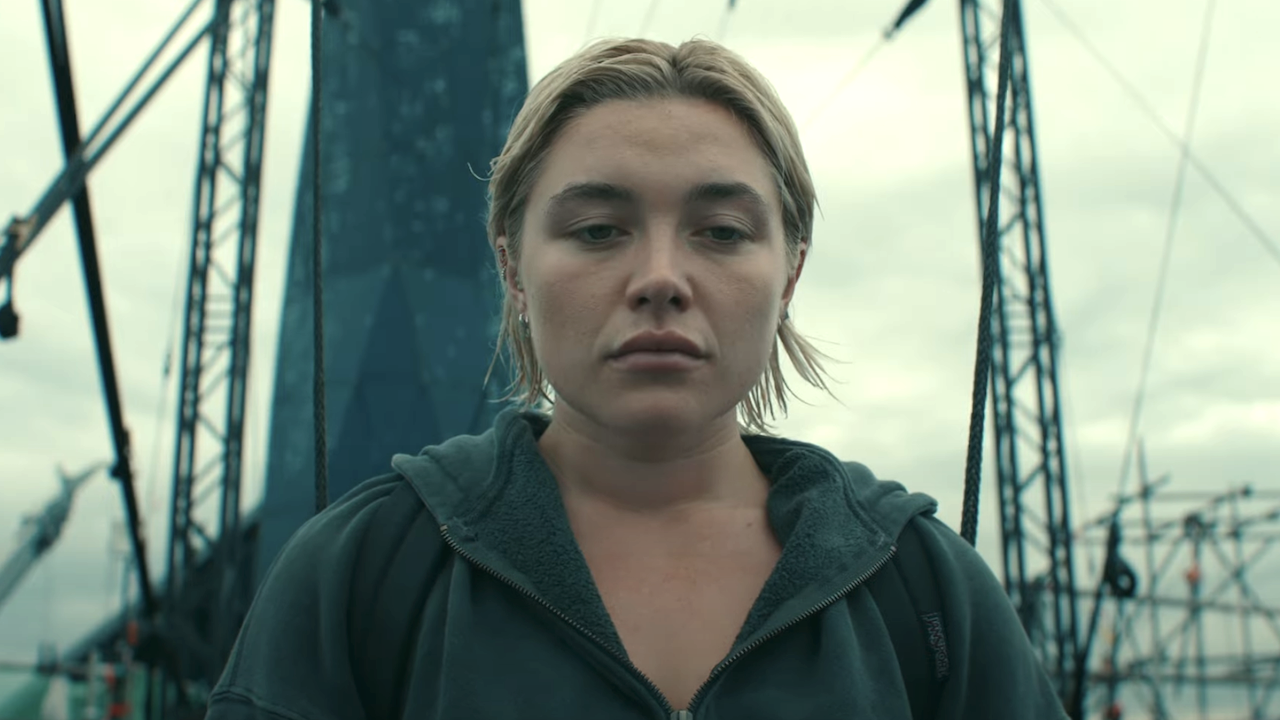Hoping that Afterschool will be one of the best movies of the year might be wishful thinking. It’s incredibly slow, deeply contemplative, and occasionally heavily unsettling. You almost never have a chance to refer to those qualities as positive, but each of them works to the film’s credit. Afterschool won’t wind up on anyone’s favorites list, but for those looking for an artistic look into the mind of a burgeoning sociopath, Antonio Campos’ feature debut will without a doubt get the job done. The film opens on a seemingly random smattering of online videos, played back in mind-numbingly low resolution, giving you an immediate feel of unease. Seeing clips of soldiers in Iraq back-to-back with clips of babies laughing maniacally will put you off your rocker a bit. This sets the tone for the rest of the film, which maintains that same level of disquiet throughout its hour-and-50-minute run time.
Watching these videos is Robert, a 16-ish junior at Bryton prep school, struggling to fit in but not really on the outs either. Not a nobody, but not a somebody. While shooting a video about the school for his AV class, he unintentionally films two girls stumbling into his abandoned hallway then dropping to the floor. His camera captures him approaching the one girl left alive and embracing her before she also dies. The rest of the movie doesn’t involve the pursuant investigation, but instead focuses on how Robert and others around him react and handle what has happened.
The story unfolds at a snail’s pace, but gives plenty of time for you to really soak up the atmosphere of the setting. The catalyst of the story doesn’t take place until more than a half an hour into the film. This may sound boring, but it leaves room for the best and most important part of telling a good story: character development. By the time you see the girls drop dead, you know so much about Robert and his "friends" that you feel as if you’re part of their very small group, living the experience with them. There’s no point in the film where someone forcing story on you says, “Oh, this piece of the Energon crystal must have been stuck in my jacket for two years, now we fight robots.” Instead, the film and its few characters grow organically until the film culminates sadly into one of the most predictable endings ever.
Complimenting the slow pacing of the story is the static nature of the camera. For the first 13 minutes of Afterschool, the camera operator had the easiest job in the business: set camera up, push "Run," cross arms, and watch scene unfold. The camera doesn’t move at all for that first section of film, and even when it does move, which is not often, the moves are so slow and methodical that you can barely tell there’s any movement at all. The director simply starts the camera and lets scenes play out in long single shots, which allows scenes to be scenes rather than exercises in how many cool shots you can fit into a five-minute chunk of film (I’m looking at you, Michael Bay.)
Shooting a movie this way and spending so much time developing characters gives an undoubtedly Kubrickian vibe to the thing, with one major difference: Stanley Kubrick, in all his glorious strangeness, told great stories. Director Antonio Campos tells an OK story, but it lacks any big surprises, and all the conflicts of character feel unmistakably minor compared to the grand scale of change in, say, Jack Torrance from The Shining or Alex, your humble narrator, from A Clockwork Orange. That’s not necessarily a bad thing, but Campos’ characters lack a certain depth, which ultimately detracts from the film.
While this certainly isn’t a bad film by any means, it isn’t great and it isn’t for everyone. The slow pace will lose people, the shallow characters will lose people, and the static cameras will lose people. Most everyone these days won’t appreciate a slow art movie like this, but despite its failings, it is still an interesting movie to watch. The people who recognize that those are the types of movies they like should hop on Netflix Instant and give Afterschool a shot. Once you load up the special features section of Afterschool, you’ll probably be a little shocked at how much content there is, especially since it’s such a small movie. The only problem is that every last bit of it is incredibly boring.
The disc is loaded with deleted and alternate scenes, but watching all of these without context is excruciating, not just because they’re boring, but because they really add nothing to the movie. It’s not a situation where you see the extra clips and think, “Wow, that really would have been awesome if it were in the movie.” Rather, you’ll find yourself wilting in your arm chair, thanking the editor for trimming this much fat, but still wondering why you’re punishing yourself with it anyway. Don’t watch these. I’m a reviewer, it’s my job to torture myself, not yours.
There’s a gag reel for the guy who plays the guidance counselor in the movie, but don’t get your hopes up. The character is great in the feature and adds an interesting dynamic to the film, but his "outtakes," if you can call them that, basically consist of him using the same jokes over and over, take after take. Don’t expect a Rumble in the Bronx blooper reel, simply expect to be almost as bored with this as with the deleted scenes.
Finally, the disk includes a short film from director Antonio Campos titled The Last 15, which chronicles the last 15 minutes of a boy's life before he commences his plan of committing suicide at the dinner table in front of his dysfunctional family. By far the most interesting special feature, the short still leaves a little something to be desired, especially if you watch it straight after you finish Afterschool. The same visual style carries over in a big way, and you might just go into art-film overload by watching them back to back.
Some other features include a couple of slide shows, one of a shitload of promo posters, the other of a shitload of production storyboards, as well as a brief interview with the film’s star, Ezra Miller, who doesn’t really have much interesting to say about his experience.
This film is definitely not a buy for pretty much anyone. Afterschool certainly has its parts that are done right, but ultimately the movie is unsatisfying, and there’s not a special feature in the bunch that makes paying for the DVD worth your while. Antonio Campos has proven that he can in fact make a movie, and based on this effort, he should surely get another crack at it, but his directorial debut falls a little flat. Right for some people, but only those who actively recognize that this type of movie is for them. If it’s not, steer clear.
Tommy Boy's Director Recalled Matthew McConaughey's Audition For The Movie And How He Filmed It In A 'Room Filled With Mouse S---'
'What The F--k? Of Course We Are.' Marvel Apparently Was Not So Enthusiastic About Florence Pugh Pulling A Tom Cruise And Jumping Off A Building
People Thought Aimee Lou Wood Was Sobbing Over That SNL Debacle, But She Opened Up About The Incident











